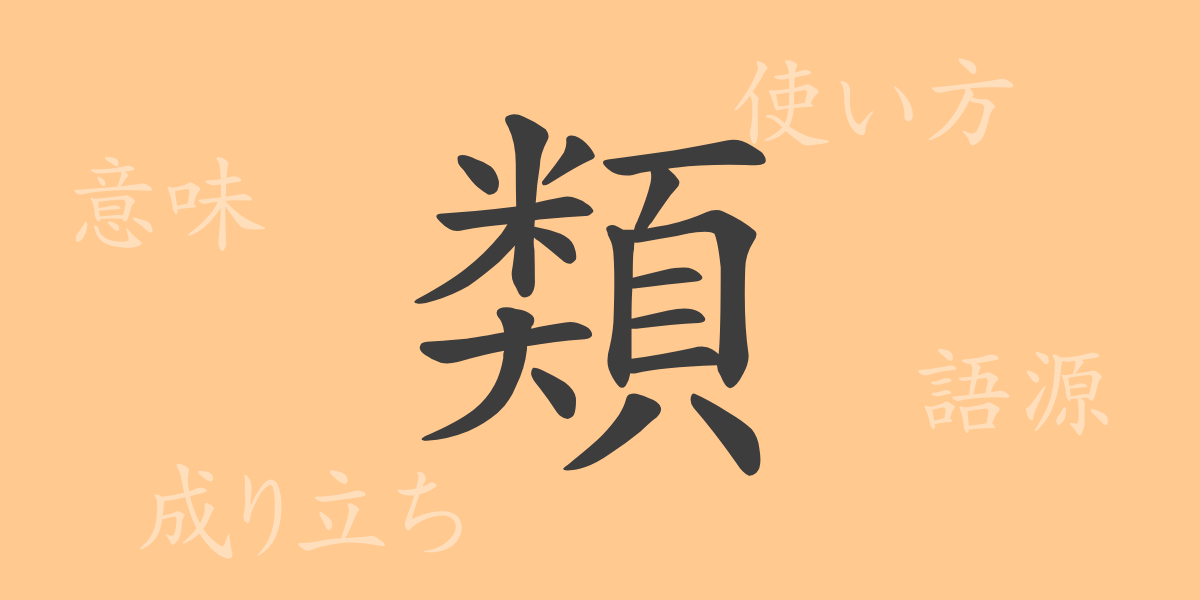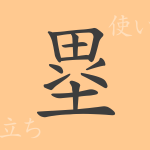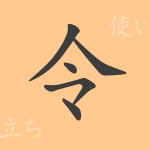The 常用漢字(jouyou kanji) “類(るい, rui)” plays a significant role in the rich expressions of the Japanese language. Frequently used in our daily conversations, literature, and business world, this kanji stands out for its rich form and meaning, thriving in various contexts. In this article, we delve into the origins, meanings, usage, and even idioms and proverbs involving “類(るい, rui)” to uncover its charm.
Origins (語源, gogen) of 類(るい, rui)
The kanji “類(るい, rui)” originated as a pictographic character in ancient China. Initially, it combined “刂(とう, tou)” meaning “knife” and “米(べい, bei)” meaning “rice,” symbolizing the act of “cutting rice.” Over time, it evolved to signify the classification of similar items. Thus, “類(るい, rui)” came to be used for categorizing similar things.
Meaning and Usage of 類(るい, rui)
“類(るい, rui)” means “things of the same kind or nature.” It is also used metaphorically to classify people or things. For instance, “動物類(どうぶつるい, doubutsu rui)” refers to various types of animals, and “この類(たぐい, tagui)の問題(もんだい, mondai)” means “this type of problem.”
Reading, Stroke Count, and Radical of 類(るい, rui)
The kanji “類(るい, rui)” has several characteristics:
- Reading: On’yomi (音読み, onyomi) is “ルイ(rui),” and there is no Kun’yomi (訓読み, kunyomi).
- Stroke Count: 18 strokes
- Radical: 頁(おおがい, oogai)
Idioms, Proverbs, and Phrases Using 類(るい, rui)
There are numerous idioms, proverbs, and phrases that include “類(るい, rui).” Here are a few examples:
- 同類(どうるい, dourui): Things of the same kind or nature.
- 人類(じんるい, jinrui): Refers to all of humanity.
- 類推(るいすい, ruisui): Inferring other cases from one example.
- 類似(るいじ, ruiji): Similarity or things that are alike.
- 類語(るいご, ruigo): Words with similar meanings.
These idioms and phrases showcase the richness of Japanese expressions.
Summary of 類(るい, rui)
“類(るい, rui)” is indispensable in our language due to its diverse meanings and usages. This kanji, passed down from ancient China, has seamlessly integrated into Japanese, creating various idioms and expressions. Understanding “類(るい, rui)” deepens our appreciation of Japanese culture and language, leading to richer communication.

























